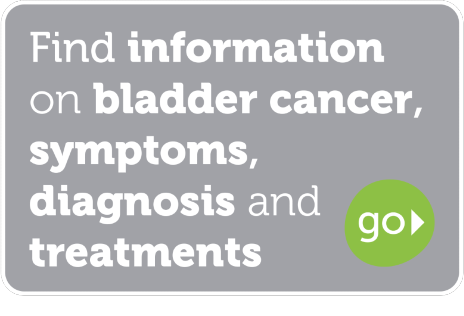Cystectomy
Cystectomy is surgery to remove the bladder. Removal of the bladder containing cancer is an effective method of management of muscle-invasive bladder cancer and can also be an option for high risk non-muscle invasive bladder cancer when either BCG therapy is considered unsuitable or where the BCG treatment fails or is not tolerated. The amount of tissue removed usually depends on the type of bladder cancer as well as the extent of disease.
In men, radical cystectomy usually involves removal of the urinary bladder, prostate and seminal vesicles as well as lymph glands that may harbour small deposits of cancer cells. Occasionally it may be necessary to remove the whole of the urethra (water pipe) as well.
In women, it usually involves removal of the urinary bladder, the whole of the urethra, part of the vaginal wall, the ovaries, the womb and the lymph nodes - for some women, the vagina and reproductive organs can be spared.
The extent of surgery is tailored to individual patients and procedures such as nerve sparing to improve sexual function can be considered.
Partial cystectomy is the removal of part of the bladder and is performed in patients with a specific type of cancer which makes up less than 5% of all cases.
WHAT CYSTECTOMY INVOLVES
Radical cystectomy can be performed either by making a abdominal incision to access the organs (open surgery) or by minimally invasive (keyhole) surgery (laparoscopic or robotic surgery).
Laparoscopic surgery (also called keyhole surgery) is carried out using 5-6 small incisions (through which the instruments are inserted). These incisions are about 1cm in length, compared to a single 15cm-18cm long incision for traditional open surgery. A camera is inserted through one of these holes in order to see inside the tummy. Gas (Carbon dioxide) is inflated into the tummy in order to create space to operate.
Robotic surgery is a laparoscopic technique where the surgeon uses a robotic device (the daVinci® system) to manipulate the laparoscopic instruments. The surgeon sits on a console that is beside the patient and the instruments inside the patient replicate the movement of his hands.
The advantages of laparoscopic or robotic surgery over the open approach are not established but average blood loss is usually less compared to traditional open surgery and return to eating and moving around is often quicker due to the smaller incisions.URINARY DIVERSION
Once the bladder is removed a urinary diversion always accompanies radical cystectomy to replace the function of the bladder. When the bladder is removed during surgery, your surgeon must recreate another route by which urine can be removed from the body. This usually involves using a section of your bowel to create an alternative method of storing and then expelling the urine.
The two common types of urinary diversion are Urostomy (ileal conduit) and neo-bladder (orthotopic continent diversion). A less common procedure including continent cutaneous diversion, ureterostomy or ureterosigmoidostomy, may be offered and discussed with you prior to the operation.
The type of diversion will depend on the extent of disease and individual patient related factors.
EFFECTS OF SURGERY
It is quite normal to feel some treatment effects after any major surgery - such as pain, discomfort and nausea. These can be managed and usually settle by the time you are ready to leave hospital.
Cystectomy is a big operation and as a general rule about one third of patients will experience a complication which requires either additional treatment or a prolonged stay in hospital.
The complications that may occur after surgery include:
Urine leak
This can happen when tissues that have been surgically joined together may not have sealed completely. Urine leaks into the tummy through the gaps in the tissues. This can lead to pain, sluggish bowel (ileus) or infection. Mostly this can be treated without any further surgery. If it persists, the patient may need insertion of tubes into the kidney to divert urine until the tissues seal completely.
Bowel leak or injury
The joined bowel may leak if it does not seal completely or other parts of the bowel can be injured during the operation. This may lead to a fistula formation (an abnormal link between two organs) or a leak of bowel contents into the tummy. These can often be managed without further surgery. Rarely, urgent surgical intervention may be required.
Bowel obstruction
This is a temporary blockage of your bowel and will require you to rest your bowel by not eating. If it doesn't resolve, it may require temporary feeding via a drip placed into your vein or surgery to move the offending blockage.
Bleeding
Bleeding that was controlled at the time of surgery may recur in the post-operative period. This could be due to factors such as hypertension and pre-operative blood thinning or surgical factors. This can be managed with transfusion of blood when required, or may necessitate reoperation to stop the bleeding.
Clots in the legs/lung
Presence of cancer and reduced mobility post operatively can give a risk of clots developing in the legs (and moving to the lungs). This can be prevented by early mobilisation in the post operative period, getting up out of bed and moving around, as well as blood thinning injections in this period. Rarely, clots still occur despite this. The management usually involves blood thinning and supporting breathing in the intensive care unit.
Although most complications following cystectomy can be managed occasionally these complications may become severe and lead to the death of the patient. Death rates following this operation are quoted as about 3%. It is important that you ask your surgeon what his/her mortality (death) rate is for this operation.
Outcome
Surgery either alone or in combination with neo-adjuvant chemotherapy offers a good overall survival for patients with bladder cancer. For patients in whom the cancer is localised in the bladder, 3 out of 4 patients (75%) will survive at 5 years and 6 out of 10 (60%) in 10 years. For cancer that has gone outside the bladder, this ranges from 35% - 50% at 5 years.
Inpatient Stay
Post-operative stay in hospital is usually between 7 - 14 days. If there are any complications then the inpatient stay may be longer.
When you should call for medical help after your surgery
Your medical team at the hospital will have advised you how to manage any expected discomfort once you have gone home after surgery. However, if you experience any of the following you should contact your doctor or hospital:
- If there is no urine drainage from your neobladder and you are unable to empty or flush your neobladder using clean intermittent self-catheterization.
- If you feel unwell and have symptoms of a urinary tract infection (fever, shivering, foul urine odour, blood in your urine, confusion)
- If you have persistent nausea and vomiting
- If you have pain in your abdomen or back that is not relived by over the counter pain relief.
- If you have blood in your urine.
Support from your Specialist Nurse
When a decision has been made for you to have a cystectomy, arrangements will be made for you to receive advice and support from one of the Specialist Nurses that deal specifically with the various bladder substitute options that you will be asked to consider. These Specialist Nurses may be referred to as Stoma Nurses or Colorectal Nurses. You should have an appointment to see them prior to your surgery, they will provide full explanations about the different options and the implications for you and your life after surgery. They will also provide support with managing your stoma (ileal conduit) or neobladder (or any other alternative option) both whilst you are in hospital and when you return home.Bladder cancer and sexual function
Radical cystectomy
Erectile dysfunction is common in men who undergo cystectomy. Men may have difficulty getting and maintaining an erection after surgery due to the damage of the nerves that run close to the bladder and prostate and/or tissue removed at the time of surgery. A nerve sparing procedure can be performed and this depends on the individual patient and the location of the cancer. This aspect of your care will be discussed with you before and after your surgery. The treatment options, which are available after your surgery, will be discussed with you when you are ready. Medical and surgical treatments, which may help men achieve an erection after surgery, are available.
For women who have a cystectomy, penetrative intercourse will be difficult after removal of part of the vagina. Women may also suffer vaginal shortening and narrowing as a consequence of removing vaginal tissue with the bladder tissue at the time of surgery. This may lead to difficulty having intercourse or discomfort during sex. Your surgeon will discuss these symptoms and your management options with you when you are ready after your surgery.
Your hospital team should include an Erectile Dysfunction nurse specialist who can talk to you about any concerns.
How we help you
Latest News / Events
Setting up a support group for your patients - Webinar for Nurses - Mon 18 Aug 2025 08/07/2025
This is a FREE ABC UK online Zoom session, which is being run in response to requests from urology and cancer nurses, on how to set up and run a successful patient support group. The session will be led by one of the ABC UK Patient Support team, together with two advanced nurse specialists...











